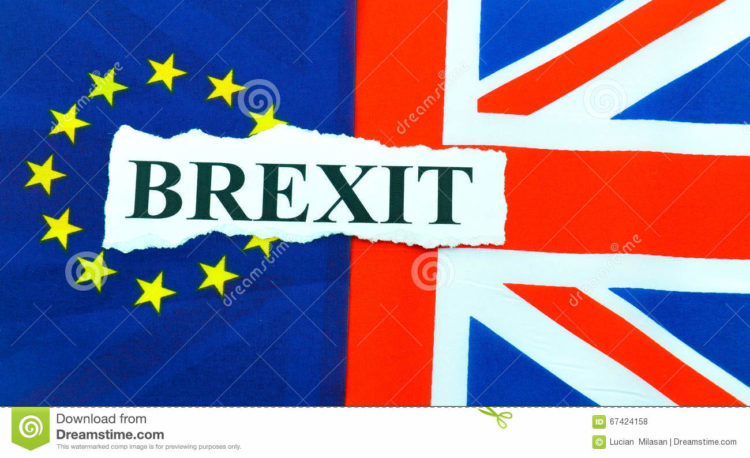As Brexit Tensions Rise, EU’s Other Big Spat Edges Toward Truce

(Bloomberg) —
Poland may be digging in over a Holocaust law that’s alarmed the U.S. and angered Israel, but a longer-running battle with its European Union allies might be about to reach some sort of truce.
A power grab of the courts by the nationalist government in Warsaw sparked two threats by the EU in recent months against Poland: losing its voting rights in the bloc and missing out on generous European development funds. Both sides are now weighing the risks of further escalation, according to diplomats and officials. That will set the tone for a Feb. 27 meeting in Brussels at which EU ministers will discuss the standoff.
For the country’s sharpest critics in the EU, the reality is that they lack the unanimity needed for the political sanction of suspending Poland’s voting rights. For the governing Law & Justice party, the financial threat resulting from EU budget talks means it can no longer disregard Brussels without expecting consequences.
“We are going to convince Brussels about how much better, transparent and independent the judicial system will become,” Polish Prime Minister Mateusz Morawiecki said in an interview at his office in Warsaw on Feb. 21. “This will be done through facts.”
What to do about the east and the risk of a systematic threat to the rule of law has overtaken Britain’s pending departure as the biggest test of unity for the EU. Unlike political bedfellows Hungary and the Czech Republic, Poland is too big to fail.
It’s the biggest net recipient of the bloc’s aid and after Brexit will be the EU’s fifth-largest nation. The country is a vital buffer between the west and Russian-influenced east and, more crucially for the European project, the biggest symbol of successful post-Cold War integration.
“I don’t think there’s much appetite on core Europe’s side to make a big fight with Poland,” said Naz Masraff, the London-based director for Europe at consultants Eurasia. “What is critical is what kind of an effect the conflict will have on the budget negotiations.”
Morawiecki, who took office in December days before the European Commission recommended a move toward suspending Poland’s voting rights, has spearheaded a charm offensive in Brussels. He said his country is making ground in repairing its relationship with Brussels, especially over its overhaul of the judiciary.
The commission’s president, Jean-Claude Juncker, set a March 20 deadline for the Polish government to heed recommendations on scaling back the judicial overhaul, which paved the way for more politically-appointed judges.
“We are currently in a constructive dialog with the Polish government,” Juncker said in mid-January days after meeting Morawiecki. On Friday, he said before a summit on the EU budget that it was “a conflict between the commission and the Polish government and we will resolve that problem.”
Diplomats and officials said the two sides are likely to reach a deal to deescalate their row, though the offer from Warsaw won’t be enough to end it. Eurasia’s Masraff expects the EU to give Poland more time while keeping the pressure on with the threat of suspending the country’s voting rights under Article 7 of the EU treaty.
“In a way, it will fizzle out gradually,” Masraff said. “But once the budget negotiations start, it may be used again to isolate Poland and limit its ability to fight for its own priorities.”
The issue for the EU is that aspirant members are graded on the strength of their democratic institutions, but existing ones have no such checks. The commission lacks the enforcement tools in judicial affairs it has in such areas as competition and the single market, heightening the role of backroom diplomacy.
Style Change
Morawiecki, a western-educated former banker, marks a change in style for Poland’s Law & Justice government, whose stated policy has been to pull the country out of the European mainstream. The question is whether the message has changed.
The controversy over the Holocaust law exposed a rising tide of anti-Polish sentiment, he said last week. The legislation seeks to criminalize suggesting that the nation played a role in the Nazi genocide. It was a culmination of Polish policies that have antagonized western countries.
Read More: Holocaust Row Shows Bias Against Poland, Premier Says
Germany, the biggest net contributor to the EU budget, has championed the notion of tying European regional funding after 2020 to the rule of law. The plan picked up support in Paris and other national capitals. Danish Prime Minister Lars Lokke Rasmussen said this week it’s “obvious that we need some kind of conditionality.”
The commission said it would seek to strengthen the eligibility conditions for regional aid when proposing the EU’s spending framework for 2021-2027. Many EU governments, though, have doubts about how to make such a provision legal and political worries that it could end up provoking an anti-EU backlash in some countries.
As for Poland, one leader in the region said he expected the standoff to be resolved and there was no need to link funding to upholding the democratic rule of law.
“I think that the Polish prime minister negotiated with Mr. Juncker,” said Czech Prime Minister Andrej Babis. “Probably they will convince the commission that everything is okay.”



No Comment